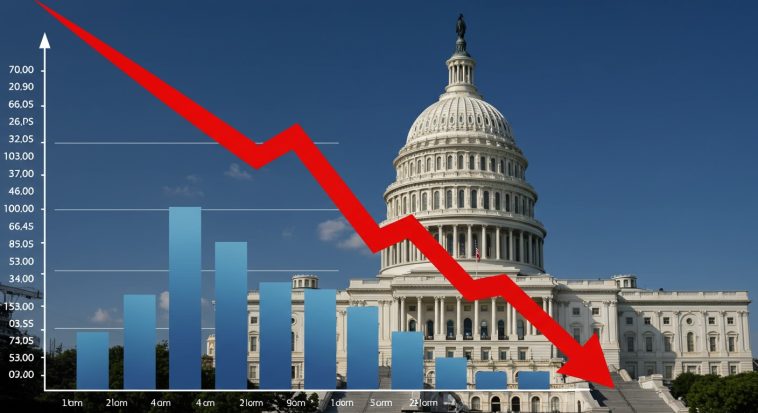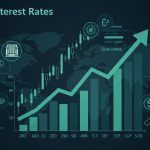Recession Risk has become a significant concern as the March CNBC Fed Survey indicates a heightened likelihood of economic downturn, coupled with a decline in growth forecasts for 2025. The primary driver of this shift is the increasing worry over tariffs, which have surpassed inflation as the top threat to the U.S. economy.
Introduction to Recession Risk
The recession risk has escalated to its highest level in six months, according to the latest CNBC Fed Survey. This increase is largely attributed to concerns over fiscal policies, particularly tariffs, which are now viewed as the primary threat to the U.S. economy, overtaking inflation. The outlook for the S&P 500 has also declined for the first time since September, reflecting growing apprehension about future economic conditions.
Impact of Tariffs on Recession Risk
The 32 survey respondents, comprising fund managers, strategists, and analysts, have raised the probability of a recession to 36% from 23% in January. This rise in recession risk is linked to the Trump administration’s trade policies, which have led to increased economic uncertainty. Barry Knapp of Ironsides Macroeconomics noted, “We’ve had an abundance of discussions with investors who are increasingly concerned the Trump agenda has gone off the rails due to trade policy. Consequently, the economic risks of something more insidious than a soft patch are growing.”
Economic Growth Forecasts and Recession Risk
The average GDP forecast for 2025 has been revised downward to 1.7% from 2.4%, marking a significant reduction. This decline in growth forecasts is closely tied to the rising recession risk, as economic indicators suggest a potential slowdown. Neil Dutta, head of economic research at Renaissance Macro Research, stated, “The risks to consumers’ spending are skewed to the downside. Alongside a frozen housing market and less spending across state and local governments, there is meaningful downside to current estimates of 2025 GDP.”
Fed Rate Cuts Amid Recession Risk
Despite the rising recession risk, most respondents believe the Federal Reserve will implement rate cuts to mitigate economic downturns. Three-quarters forecast two or more quarter-point cuts this year, driven by concerns over tariffs and their impact on inflation and growth. However, the policy uncertainty surrounding tariffs has created a wide range of views on the Fed’s actions.
Conclusion on Recession Risk
In conclusion, the rising recession risk is a pressing concern for the U.S. economy, driven primarily by the impact of tariffs. As economic growth forecasts decline and inflation expectations rise, policymakers face significant challenges in navigating these uncertainties. The recession risk remains a critical factor in economic discussions, influencing both market outlooks and policy decisions.



